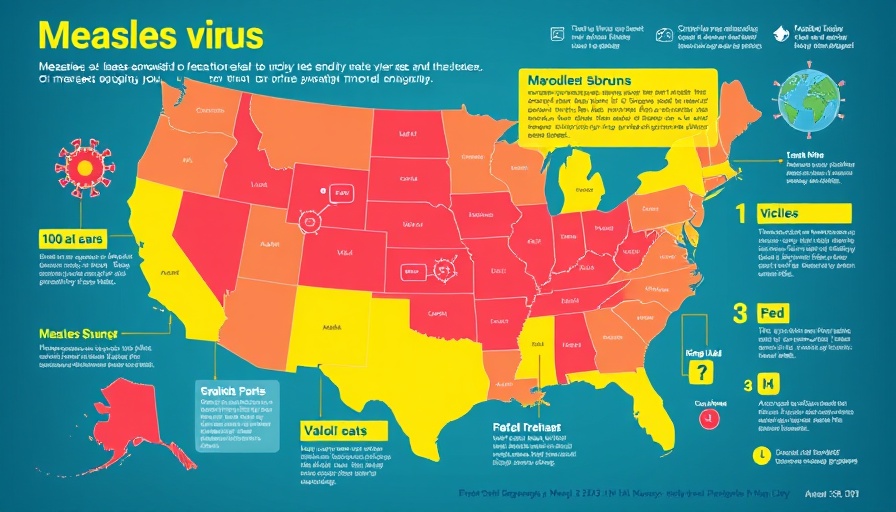
US Measles Cases Hit Alarming Levels: A Wake-Up Call
For the first time in five years, the United States has surpassed 1,000 reported cases of measles, highlighting the critical state of vaccination coverage and public health awareness across the nation. As scientists and health officials scramble to combat what some are calling a resurgence of vaccine-preventable diseases, questions arise about the consequences for future generations and the ongoing debate surrounding vaccine hesitancy.
The Rising Tide: Understanding Measles in America
The recent surge in measles cases raises alarms similar to those seen in earlier outbreaks. While the majority of the current cases are concentrated in states with vast numbers of unvaccinated children, the ripple effects can be felt nationwide. With measles being one of the most contagious viruses known to humankind, the risk remains high for vulnerable populations, including infants who are too young to be vaccinated.
CDC data reveals that most of the cases reported stemmed from outbreaks linked to domestic and international travelers, underscoring just how interconnected our health can be in a globalized world. As we learn from these developments, it becomes evident that personal choices about vaccination can impact the greater public health.
Historical Context and the Vaccination Debate
Historically, the United States had made significant progress in nearly eradicating measles through effective vaccination programs. In 2000, the disease was declared eliminated in the U.S. due to high levels of vaccination coverage. However, this recent spike—over 30 states reporting cases—signals a step backward and illustrates the public's shifting perception on vaccination.
Many of those hesitant about vaccines express concerns over safety and a belief in natural immunity over medical intervention. This trend poses a significant challenge to public health officials who leverage data and the success of immunization to encourage vaccine uptake.
Social Implications and Public Perception
Social connections play a crucial role in shaping opinions regarding vaccination. The influence of social media and community belief systems has been vastly attributed to the rise in vaccine skepticism. The spreading of misinformation online has led to polarized views that can significantly disrupt vaccination campaigns.
Community discussions and engagement are necessary to counteract misinformation. Public health advocates need to prioritize outreach and educational efforts, focusing on the myths surrounding vaccines while also addressing the valid concerns parents may have.
Future Predictions: What Lies Ahead?
As we approach the fall season, health experts caution against complacency. The resurgence of measles serves as a precursor to potential future outbreaks if vaccination rates don’t improve. Projects predict that if current trends continue, diseases once manageable could see a revival.
Returning to health priorities such as ensuring children receive their routine vaccinations and conducting widespread education campaigns could help mitigate this risk environment. With the advent of COVID-19, it is essential that we find a balance in acknowledging the concerns around vaccines and promoting public health as a community responsibility.
Actions for Change: Community Engagement and Advocacy
Addressing public health issues significant to measles outbreaks requires more than just enhanced communication; it necessitates community engagement. Individuals can take action by advocating for policies that support immunization in educational institutions and workplaces, while being mindful of their surroundings. Additionally, speaking out against misinformation in community forums and promoting medical facts about vaccinations can create a ripple effect toward better health practices.
In conclusion, as we confront the reality of more than 1,000 measles cases in the U.S., it becomes increasingly vital for advocates, health officials, and individuals to unite against vaccine misinformation and ensure public safety. Community awareness and advocacy are not mere suggestions but essential components of our health landscape.
Join the conversation today, engage with local health initiatives, and be a part of the solution to eradicate this dangerous trend. Your voice matters in promoting public health for ourselves and future generations.
 Add Element
Add Element  Add Row
Add Row 



Write A Comment